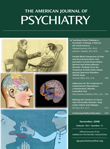Apolipoprotein E Genotype, Cortisol, and Cognitive Function in Community-Dwelling Older Adults
Abstract
Background: Elevated cortisol indicates stress and may be a risk factor for cognitive decline in aging. Genetic factors may influence individual vulnerability to the adverse effects of stress on cognitive function in aging. Method: The authors investigated whether the gene-environment interaction between the genotype for the apolipoprotein E gene ( APOE ) and cortisol predicted cognitive performance in older urban adults. Cross-sectional data were analyzed from a population-based sample of 50–70-year-old men and women. Cognitive performance, salivary cortisol levels, and APOE genotype were assessed in 962 subjects. Scores on 20 standard cognitive tests were combined into seven domain scores (language, processing speed, eye-hand coordination, executive functioning, verbal memory and learning, visual memory and learning, visuoconstruction). Results: In adjusted models, while a higher cortisol level was associated with worse cognitive scores, the slopes of the adverse relations were steeper in persons with at least one APOE -ε4 allele. Effect sizes were large: for example, the effect of having one ε4 allele plus a cortisol area under the curve greater than the 75th percentile was equivalent to a decrease in language score expected from an age increase of 8.0 years (95% confidence interval=1.7–14.4), while having two ε4 alleles and a cortisol area under the curve greater than the 75th percentile was equivalent to an age increase of 33.4 years (95% CI=14.8–52.0). Conclusions: These data suggest that APOE genotype modifies cortisol’s relations with cognitive functioning and that the ε4 allele increases vulnerability of the aging brain to adverse effects of stress.



